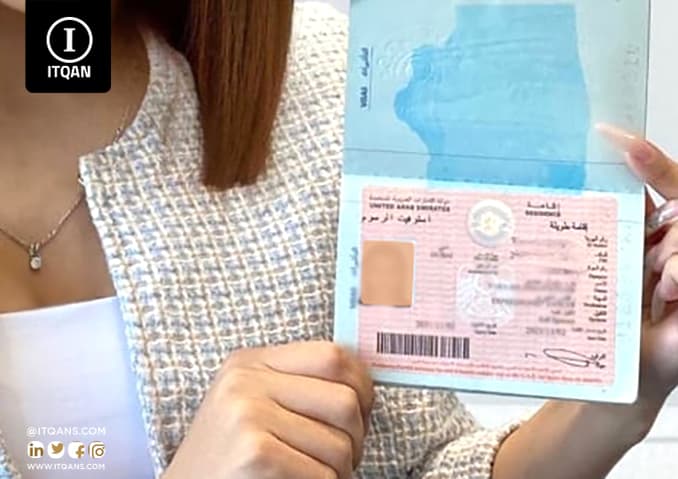Establishing a company in Dubai is an important strategic step for investors seeking to benefit from the dynamic business environment in the UAE. Dubai has a developed infrastructure, effective business regulation, and a legal system that encourages investment, making it a preferred destination for international businesses and companies. In this article, we will take an overview of how to set up a company in Dubai and the main steps required for this.
Establishing a company in Dubai , the first important step is to determine the type of company suitable for your needs, whether it is a sole proprietorship, a joint stock company, or a company in a free zone. After that, you must choose a unique name for the company, ensure its availability, and reserve it with the competent authority. The next step includes preparing the necessary documents such as the company contract and company bylaws that define the company structure and the rights of the partners.
After that, the registration application must be submitted to the Department of Economic Development or the relevant authority in Dubai, making sure that all legal conditions and requirements are met. Once a company is registered, business owners must comply with local tax and legal obligations, which requires submitting tax returns and adhering to the emirate’s tax system.

How to establish a company in Dubai
جدول المحتوى
ToggleHow to establish a company in Dubai
Establishing a company in Dubai requires following several basic steps. Here’s a step-by-step guide on how to do it:
- Choosing a company type: Select the appropriate company type based on business activity and future plans. Options include a limited liability company (LLC), a one-person company, a partnership, a limited partnership, and a branch of a foreign company.
- Choose a company name: Choose a unique name for your company that complies with local laws. Make sure that the name is not used by another company and is not against the cultural and religious values of the UAE.
- Obtaining initial approval: Apply for initial approval from the Dubai Economic Development Department (DED). This includes submitting the required documents and specifying the type of business activity.
- Preparing legal documents: Prepare the Memorandum of Association and Articles of Association. If you are forming an LLC, you will need to involve a local partner with 51% equity.
- Choosing a company location: Choose a suitable location for your company headquarters. It can be within a free zone or on the mainland. A registered lease contract for the property must be submitted.
- Obtaining the required licenses: Depending on the type of business activity, you may need additional licenses from the competent authorities such as the Department of Tourism, the Department of Health, or others.
- Registration and obtaining a commercial license: After preparing all documents and paying the required fees, submit the final application to the Department of Economic Development (DED) or the competent authority in the free zone. You will receive a business license enabling you to start your business operations.
- Open a bank account: Open a business bank account at a local bank to manage your company’s financial transactions.
- Obtaining employee visas: If you plan to hire workers, apply for work visas for them.
- Compliance with tax and administrative laws: Ensure compliance with all local tax and administrative laws. Register for value added tax (VAT) if your activity requires it.
Conditions for opening a company bank account in Dubai
Opening a bank account for a company in Dubai requires compliance with several conditions and procedures. Here is an overview of the steps and conditions required:
- Legal registration of the company: The company must be officially registered in Dubai and have a valid business license issued by the Department of Economic Development (DED) or the relevant free zone authority.
- Information on shareholders and directors: Copies of passports and residence visas of all shareholders and directors.
A copy of the Emirates ID for residents.
Proof of residential address for both shareholders and directors (utility bill or lease contract). - Additional documents: Some banks may request a brief business plan explaining the nature of the business activity and expected sources of revenue.
Some banks may require police good conduct certificates for shareholders and directors. - Capital Deposit Requirements: Initial deposit requirements vary by bank and account type, but you must have a certain amount to deposit into the account when you open it.
- Personal interview: Banks usually require a personal interview with the authorized signatories or major shareholders of the company.
- Compliance with anti-money laundering requirements: Banks may request additional details to ensure compliance with anti-money laundering and counter-terrorism financing laws, including details about potential customers and business partners.
- Choosing between local and international banks: Dubai has a variety of local and international banks, and you can choose the bank that best suits your company’s needs based on the services provided and fees.
The cost of establishing a company in Dubai
The cost of establishing a company in Dubai varies based on several factors, including the type of company, its location (in a free zone or outside it), and the type of business activity. Below is a breakdown of some of the basic costs you may face when setting up a company in Dubai:
- Company Registration Fees: Company registration fees vary based on the type of company and its location. These fees may range depending on the different options between free zones and the mainland.
- Licensing costs: These include the costs of obtaining the basic commercial license from the Department of Economic Development or the competent authority in the free zone. These costs depend on the type of business chosen.
- Trade name reservation fees: Fees for reservation and registration of the company name with the Department of Economic Development.
- Lease costs: The cost of leasing an office or work space, which varies depending on location and size. Costs can be higher in free zones or in prime commercial locations.
- Translation and documentation costs: Fees for translation and authentication of legal documents and documents necessary to establish the company.
- Local Service Agent Fee (if applicable): If the company requires a local service agent, there will be a fee associated with this service.
- Legal and accounting consulting fees: You may need to pay legal and accounting consulting fees to ensure compliance with all regulations and legal requirements.
- Document preparation costs: These include preparing the articles of incorporation and articles of association, which may require translation and notarization.
- Visa and accommodation costs: If you plan to hire workers or live in Dubai yourself, you will need to pay for the costs of issuing residence and work visas.
- Additional services fees: These costs include additional services such as communication services, information technology, and other facilities.
- Annual government fees: Annual government fees vary based on the type of company and its location, and include the annual renewal fee for the business license.
- Bank account opening costs: Some banks may require an initial deposit or account opening fees.
Licenses required to establish a company in Dubai
To establish a company in Dubai , you must obtain a set of licenses that vary depending on the type of business activity and the geographical location of the company. Here are the basic types of licenses required to establish a company in Dubai:
1. Business License
This license is required for general businesses such as retail and general trade.
Issued by the Department of Economic Development (DED) in Dubai.
2. An industrial license
is required for companies that engage in manufacturing and production activities.
It is issued by the Department of Economic Development (DED) and requires additional approvals from other government agencies such as Dubai Municipality.
3. A professional license
is required for businesses that provide professional services such as consulting, legal services, engineering, and design.
Issued by the Department of Economic Development (DED).
4. A tourist license
is required for companies active in the tourism sector, such as travel agencies, hotels, and tourist trips.
Issued by the Department of Tourism and Commerce Marketing (DTCM).
5. A Free Zone License
is required for companies that wish to operate within one of the free zones in Dubai such as Jebel Ali Free Zone (JAFZA), Dubai Internet City, or Dubai Media City.
Issued by the relevant authority in the selected free zone.
6. An e-commerce license
is required for businesses conducted online.
It is issued by the Department of Economic Development (DED) and requires additional approvals depending on the type of e-commerce activity.
At the conclusion of this article, we find that establishing a company in Dubai is a distinctive strategic step for any investor or entrepreneur seeking to expand and grow in a dynamic and prosperous business environment. Dubai is characterized by advanced infrastructure, an encouraging legal environment, and strong government support for both emerging and established companies. These factors make Dubai a global hub for business and innovation.
The process of establishing a company in Dubai requires following systematic steps, starting with determining the type of company and registering it, through preparing the necessary legal documents, all the way to obtaining the required licenses and opening bank accounts. Costs and procedures vary depending on the type of company and location chosen, whether within the free zones or on the mainland. However, the many advantages that Dubai offers, such as tax exemptions in free zones, facilitating licensing procedures, and the availability of advanced infrastructure, make investing in Dubai an attractive option.
Despite the challenges that companies may face at the beginning of their establishment, utilizing legal and financial consulting services can help overcome these obstacles and ensure full compliance with local laws. In addition, Dubai provides many financing and investment opportunities that contribute to supporting the growth and expansion of companies.
The most frequently asked questions about establishing a company in Dubai
Can foreigners establish a company in Dubai?
Yes, foreigners can establish a company in Dubai, whether in the free zones or on the mainland, subject to laws and regulations on foreign ownership.
What are the differences between establishing a company on the mainland and the free zone?
The mainland allows trade within and outside the Emirates, while free zones are limited to trade outside the Emirates.
How long does it take to establish a company in Dubai?
The time varies depending on the type of company and procedures required, but is usually between two and four weeks.
Do I need a special license to conduct business?
Yes, you need to obtain the appropriate business license for your business before doing business.
Is it possible to establish a company without a physical headquarters in Dubai?
In some cases, a company can be established using virtual office services, especially in free zones.

















